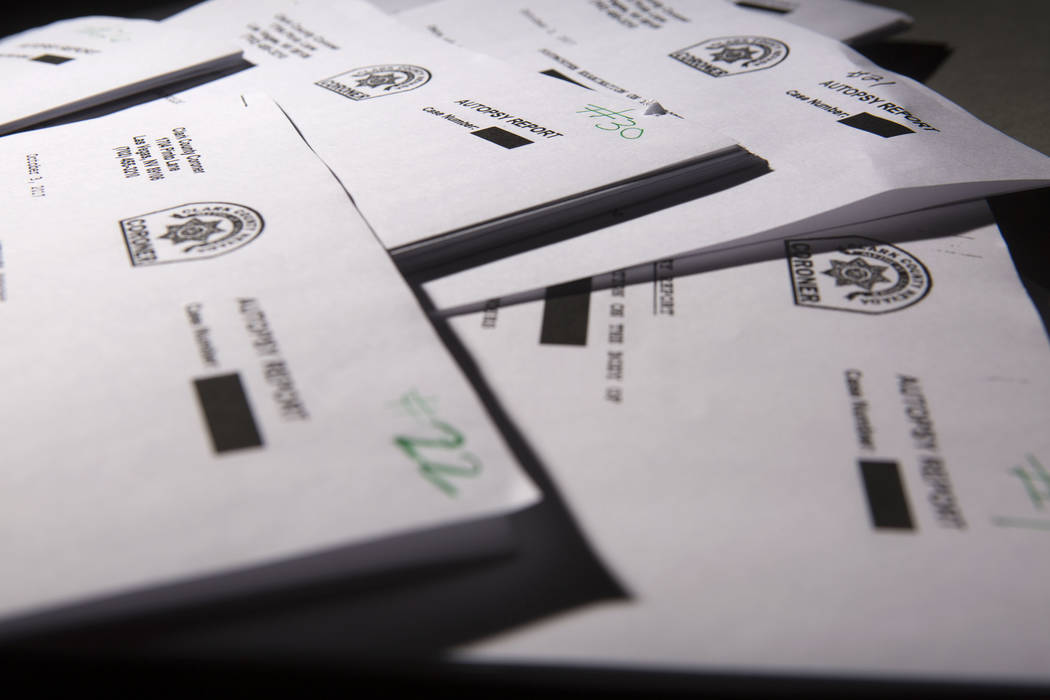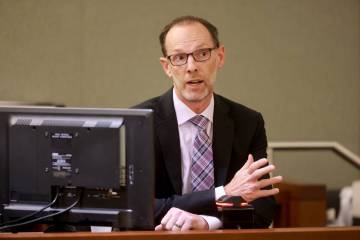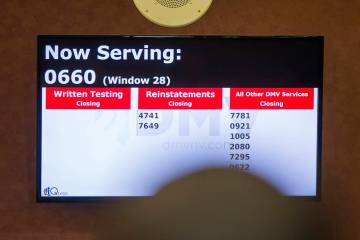EDITORIAL: Government transparency is too often under siege
Sunshine Week has concluded, but the fight to ensure government transparency requires unremitting vigilance. A public sector allowed to operate in the shadows becomes a petri dish of corruption and waste. Nevada’s Public Records Act is designed to ensure that state taxpayers have access to information about the institutions their financial contributions support. The law’s preamble notes the statute is intended to “foster democratic principles” and should be “construed liberally.”
But while most public servants and elected officials maintain a fealty to openness and accountability, too often their default setting is to pull the curtains, draw the shades and flip off the light switch. Over the past week, the Review-Journal has chronicled a number of instances in which government agencies violated both the letter and spirit of the law without consequence. These types of evasions have become distressingly common:
■ For more than two years, the Metropolitan Police Department has been battling the Review-Journal’s attempts to gather records on how the department enforces sex trafficking and prostitution laws. The department’s intransigence triggered a court battle — in other words, Metro used taxpayer money in an effort to keep information from those same taxpayers.
In August, District Judge Joe Hardy said the police agency’s response to the records request “boggles my mind,” noting that it “has not complied or even come close to compliance” with the law. Nevertheless, department officials refused to follow Judge Hardy’s directive that they be more forthcoming, appealing to the Nevada Supreme Court. The justices unanimously ruled against Metro, yet the department has fulfilled only snippets of the original request.
“A judge determines the police are breaking the law and orders them to come to the table to work out how they will release public information,” noted Review-Journal Executive Editor Glenn Cook. “The police, who are charged with upholding the law, refused to follow the Public Records Act. Then they fought efforts to get them to comply.”
■ Despite losing in court more than a year ago, Clark County Coroner John Fudenberg refuses to follow the law and release autopsy reports to the public.
The Review-Journal requested such documents in an effort to determine whether children under the auspices of County Child Protective Services had been abused before their deaths. Mr. Fudenberg maintained the records could be kept secret. But in September 2017, District Judge Jim Crockett ruled against him. “I found the legal arguments insufficient to justify withholding the information,” he said.
Rather than step in and pressure the coroner to follow the law, county commissioners allowed Mr. Fudenberg to appeal to the state Supreme Court, which has yet to hear the case. At this point, the county has spent almost $50,000 in taxpayer money to keep taxpayers in the dark.
Mr. Fudenberg is no doubt well-meaning in his belief that the release of autopsy reports could be distressing to the families involved. But such reports are vital to many criminal investigations and prosecutions, and the information they contain can shed light on suspicious circumstances and wrongdoing. There is a legitimate public interest in allowing access to autopsy records.
■ Democrats in Carson City appear poised to pass a bill — offered by state Sen. Julia Ratti, D-Sparks — that would restrict public access to certain information about public pension payouts. The proposal would create an exception to the public records statute, making it more difficult for the taxpayers to learn how much they’re paying retired government workers.
For years, attorneys for the Public Employees’ Retirement System of Nevada have tossed away taxpayer money fighting requests for pension payouts. They’ve lost at every turn — including the state Supreme Court — and have now turned to lawmakers for protection. Unfortunately, legislative Democrats seem eager to weaken the Public Records Act by choosing their government union benefactors over state taxpayers, accountablity and transparency.
Rather than narrowing a statute that “fosters democratic principles,” lawmakers should instead focus on beefing up penalties for those individuals or agencies that refuse to recognize the government’s business is indeed the public’s business. Government secrecy — with rare exceptions — is anathema to both the public interest and an open, prosperous and free society. It’s not a function of the bureaucracy to decide what the people need to know. Indeed, the people have an inherent right to know so they may serve as a check on the public institutions they have created and financed.




























